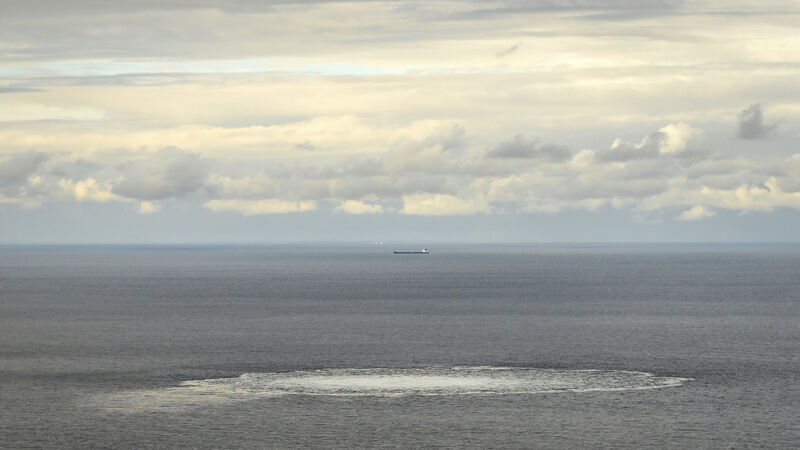Neutrality 'not relevant' when it comes to protecting Ireland from attacks on subsea cables

The European Centre of Excellence for Countering Hybrid Threats is examining the threat to transatlantic cables off the coast of Ireland, especially after the attacks on the Nord Stream gas pipelines in the North Sea last September. Picture: Rune Dyrholm/Armed Forces of Denmark via AP
Ireland’s neutrality is “not relevant” when it comes to protecting the country from hostile attacks on critical subsea cables in or near Irish-controlled waters, the head of a European intelligence body has said.
Jori Arvonen said technology cables are potential targets not because they connect to Ireland or are in Irish waters but because they connect to, and are crucial for, many European countries.










